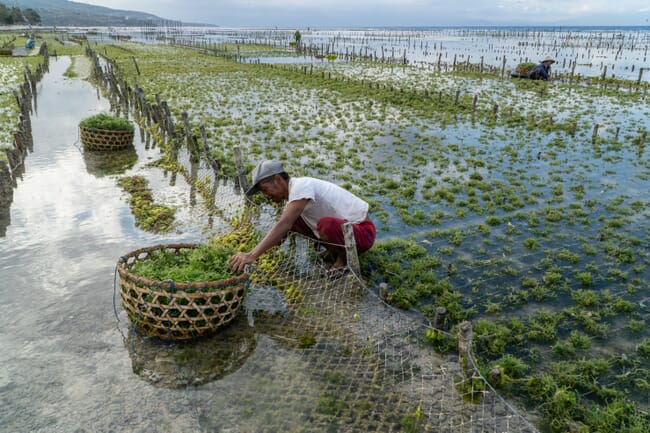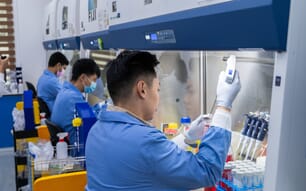
© Shutterstock
Seaweed, a fast-growing and underutilised marine resource, could play a key role in shaping the future of food production. With growing concerns over the environmental impacts of conventional meat and seafood industries, new research is investigating how seaweed-based ingredients can support the development of cultivated alternatives.
The Tropical Futures Institute (TFI) at JCU Singapore and SIT are collaborating on a project to address a key challenge in cultivated meat production: developing a low-cost, high-performing sustainable alternative to traditional cell culture media. The initiative focuses on converting seaweed proteins into high-value hydrolysates, supporting circular economy principles. Protein hydrolysates are mixtures of amino acids, small proteins and bioactive compounds that form when large proteins are broken down into smaller components.
“Simply put, we are exploring avenues to turn seaweed into delicious cultivated meat and seafood,” said TFI research fellow Dr Thimo Ruethers in a press release.
“By breaking down seaweed and its proteins into smaller components, we can create a more affordable and sustainable way to feed the animal cells used in cellular agriculture,” SIT’s principal investigator Associate Professor Juan Du explains.
The team uses advanced enzymatic hydrolysis technologies and protein analysis tools to identify the most effective breakdown processes for different seaweed species. The goal is to develop scalable, cost-effective and sustainable alternatives to conventional cell culture media. Previously, fetal bovine serum was required for cell growth.
The project, SeaToMeat – Optimizing Seaweed Proteins to Cultivate Meat, is supported by a research grant from the Good Food Institute (GFI) and a collaboration between JCU in Singapore and Australia, SIT and industry partner Umami Bioworks. It also involves researchers from IPB (Bogor Agricultural) University in Indonesia and aims to source seaweed sustainably from farms in Indonesia and Australia.
SIT applies its food processing expertise to optimise how the seaweed-derived hydrolysates are extracted and refined. Researchers from JCU and SIT recently showcased their collaborative impact through a study investigating future foods from mungbeans. TFI also brings its expertise in protein science, food safety, tropical aquaculture and marine science to the project - focusing on evaluating the nutritional properties of seaweed and its potential as a sustainable ingredient for cell growth media.
Umami Bioworks, which specialises in innovative cellular aquaculture production, offers industry insight into the practical application of these ingredients in real-world cultivated seafood systems and previously signed a Memorandum of Understanding to explore research and development in cultivated fish safety and quality with JCU Singapore. Going ahead, Indonesian collaborators will provide valuable knowledge and support through regional seaweed types.


